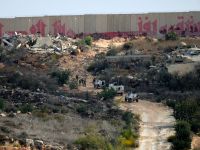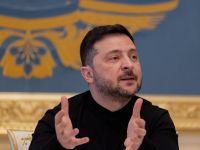The Palestinian leadership has played down the significance of moves towards resuming peace talks with Israel, stressing that the violence continues with six more dead on Friday.
"While Israel presents certain contacts and meetings as a significant step in the peace negotiations... on the ground the Israeli attacks continue and are increasing in ferocity, through physical elimination, state terrorism and aggression against Palestinian leaders," the Palestinian cabinet said in a statement after a meeting in Gaza presided over by Yasser Arafat.
Since December 10, several militants from Fateh, Palestinian leader Arafat's movement, have been killed in Israeli army operations.
Israeli Foreign Minister Ben Ami said Friday he was confident peace negotiations would resume with the Palestinians, amid reports that talks could restart during US President Bill Clinton's last days in office.
"What we're doing right now, is a common effort to reduce the violence and create conditions to restart negotiations," Ben Ami told Israeli public television, the day after a surprise meeting with Arafat.
That meeting was the most high-powered one between the two sides since Arafat and Barak met in Paris on October 4.
But aides of Israeli caretaker prime minister Ehud Barak cautioned that such talks had "less than a 50 percent" chance of succeeding, public television said.
The television, quoting sources close to Barak, said official negotiations would resume next week "in Washington or in the region."
US State Department spokesman Richard Boucher said Washington was exploring the possibility of holding "direct discussions between negotiators on both sides back here in Washington".
In the latest violence on Friday the Israeli army fired at least 20 tank shells in the direction of the Gaza Strip town of Rafah, which is also the site of a Palestinian refugee camp, Palestinian witnesses said.
There were no injuries during the shelling, the witnesses said, but several houses were damaged in the town, which is close to the Egyptian border.
Earlier six more Palestinians were killed in the continuing violence which has left over 330 dead, mostly Palestinians, in recent weeks.
Also casting doubt on the new diplomatic push were comments by would-be prime ministerial contender Benjamin Netanyahu, who made it clear that if elected he would not accept any deal that Barak might reach with the Palestinians.
"Not only do I consider that no accord would bind me, but also that the outgoing government of Ehud Barak has no legal or moral right to reach any such deal," he told the daily Yediot Aharonot.
"It is inconceivable that a minority government supported by less than one-quarter of the Knesset (parliament) could commit itself to anything in the name of the Israeli people," Netanyahu said.
Netanyahu is barred from standing for prime minister in February's election because he is not a member of parliament, but legislation has been introduced in parliament that would remove this obstacle.
A radio report said Ben Ami had agreed that Israel would withdraw its forces from advanced positions in the Palestinian territories and lift the blockade on Palestinian towns, in line with October's Sharm el-Sheikh accord.
Palestinian information minister Yasser Abed Rabbo told AFP the talks on talks were only "preliminary contacts". They first wanted to "verify if Israel has changed its posture and to evaluate the chances of a real resumption of negotiations, he added.
There was optimism from French Foreign Minister Hubert Vedrine, who concluded a two-day tour of the region saying he saw "a will on both sides to renew political dialogue".
"On the ground the situation is still tense but on the political front it seems that the Israelis and the Palestinians have reached the conclusion that there is no other solution than to renew dialogue," said Vedrine, whose country holds the European Union's rotating presidency -- GAZA (AFP)
© 2000 Al Bawaba (www.albawaba.com)







